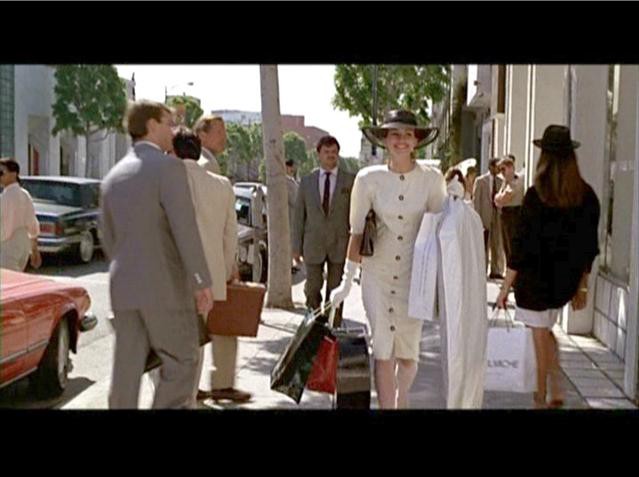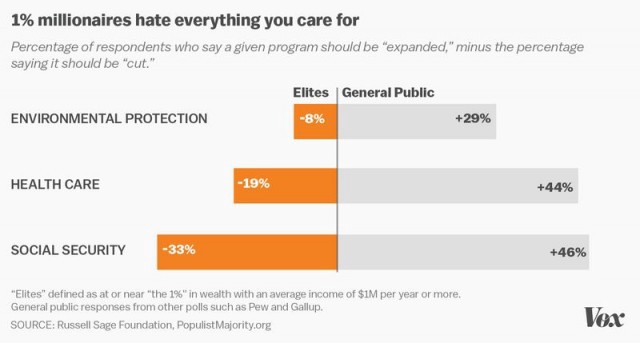Rich And Poor Families Alike When It Comes To Spending

Vox has put together a series of colorful, interactive charts that show that, whether we make $70,000+ a year or only $5,000, we in America have relatively consistent spending priorities:
the average American making anywhere from $10,000 to more than $70,000 in annual salary uses a large share of total take-home pay for housing, transportation, food, and health-care-related costs. Death and taxes are great equalizers … and so is visiting a doctor.
This is great! We should all be able to relate to each other.
The top income bracket listed spends $300+ on tobacco products a year; so does everyone down the income ladder until you hit people who only make $15,000 a year. They spend $200+, as do folks making as little as under $5K. I guess the cost of smoking remains pretty constant no matter how rich you are. Proportionally, though, low-income folks suffer a lot more for the habit, since $315 is a much smaller percentage of $70K (.45%) than $267 is of $4K (6.7%).
Nobody reads, not even the rich. Those $70K-ers spend only $171 a year on the hobby; everyone else spends well under $100, if anything. #PrintIsDead #RIP
And nobody seems to save much, either. On average, across income brackets, everyone’s expenditures either basically equal or, in the case of the bottom five brackets, exceed their income. The richest folks spend more on Pensions and Insurance than Food. No one else can prioritize that way.
In general, though, we’re all alike, like Tolstoy’s happy families. Can we bond? Is it Kumbaya time? Don’t count on it. According to one new study, the rich have markedly different values than the rest of us. That is to say, they’re more selfish.
Elite Americans are not just middle-class people with more money. They display distinctive attitudes on basic moral and political questions concerning economic justice. Simply put, the rich place a much lower value on equality than the rest. What’s more, this lack of concern about inequality among the elite is not a partisan matter. Even when they self-identify as progressive Democrats, elite Americans value equality less highly than their middle-class compatriots.
How do the researchers figure that? They looked at the results of a behavioral experiment.
The experimental behaviors of these three subject classes — once again, making real allocations with real money — revealed stark differences between attitudes toward economic justice among ordinary Americans and among the elite. To begin with, the [intermediate elite] Berkeley and [super elite] Yale subjects were twice as likely to be selfish as their compatriots in general. In this respect, intermediate and extreme elites stand together with each other, and stand apart from the rest of the country.
What’s more, elite Americans show a far greater commitment to efficiency over equality than ordinary Americans. And this time, the bias toward efficiency increases with each increment of eliteness. The ALP subjects split roughly evenly between focusing on efficiency and focusing on equality; the Berkeley students favored efficiency over equality by a factor of roughly 3-to-2; and the Yale Law students favored efficiency by a factor of 4-to-1.
CEOs seem rather out of touch:
“It’s not right to say we’re worse off,” Dimon told the Detroit Economic Club on Thursday during a q&a with MSNBC’s Chuck Todd. “If you go back 20 years ago, cars were worse, health was worse, you didn’t live as long, the air was worse. People didn’t have iPhones.”
In short, rich people remain jerks.

Support The Billfold
The Billfold continues to exist thanks to support from our readers. Help us continue to do our work by making a monthly pledge on Patreon or a one-time-only contribution through PayPal.
Comments